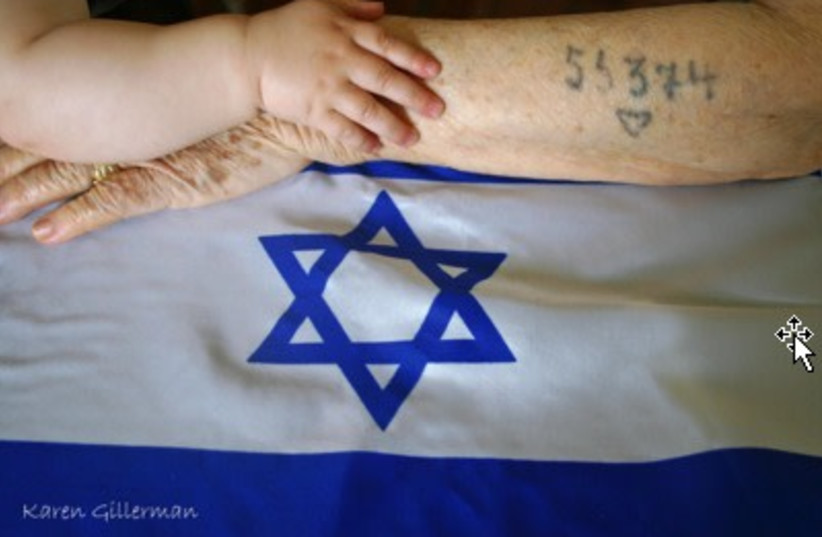Almost 60% of Jewish Israelis believe the Holocaust is a unique event distinct from other acts of genocide throughout history, according to Israel Democracy Institute's (IDI) Israeli Voice Index, which was released on Wednesday.
The index, released just as Israel marks Holocaust Remembrance Day, examined the connection between the Holocaust and Israelis today.
Interestingly, the index showed a decline in the amount of Jewish Israelis who feel the Holocaust is an event incomparable to others.
When the same question was asked in 2019, more than three out of four Israelis (75.5%) agreed the Holocaust is unique, while 21% argued it is similar to other historical occurrences of genocide, such as the Armenian genocide in Turkey. In 2022, one out of three respondents said the Holocaust is not a unique historical event.
The decrease was seen across all sectors of Jewish Israelis, from an 18.5% drop in secular Jews who feel the Holocaust is unique compared to 2019 to a 19% drop among religious Jews.

Israelis aligned with the right-wing are more likely to say the Holocaust is different from other instances of genocide, the survey showed. More than two-thirds (68%) of right-wing Israelis agreed with the statement, while only half (52%) of those who identify as being on the political center and 38% of left-wingers felt similarly.
Jews who have made aliyah from Russia and other former Soviet nations show the least amount of relation to the Holocaust out of all major ethnic groups within Jewish Israeli society, with only 43% stating the Holocaust is a unique event.
How is remembrance marked?
Four out of five Israelis (81%) said they stand in silence during the Holocaust Remembrance day siren to pay respects to the victims and survivors of the Holocaust. Three-thirds (60%) stated they also watch television broadcasts about the Holocaust.
Nine percent of respondents said they do not do anything to mark Holocaust Remembrance Day. That number includes 61% of ultra-Orthodox (haredi) Jews who said they do not take part in any Holocaust remembrance activity, by far the most of any Israeli sector. In comparison, only 5% of secular Israeli Jews said they do not commemorate the Holocaust.
In fact, only 30% of haredi Jews stand during the Holocaust Remembrance Day siren, the lowest percentage of any sector.
The index revealed significant trends which seem to show that visiting one of Europe's death camps can help Israelis relate to the Holocaust more. According to the survey, visiting such camps makes a person 8% more likely to stand for the siren and 8.5% more likely to participate in a Holocaust commemoration ceremony.
